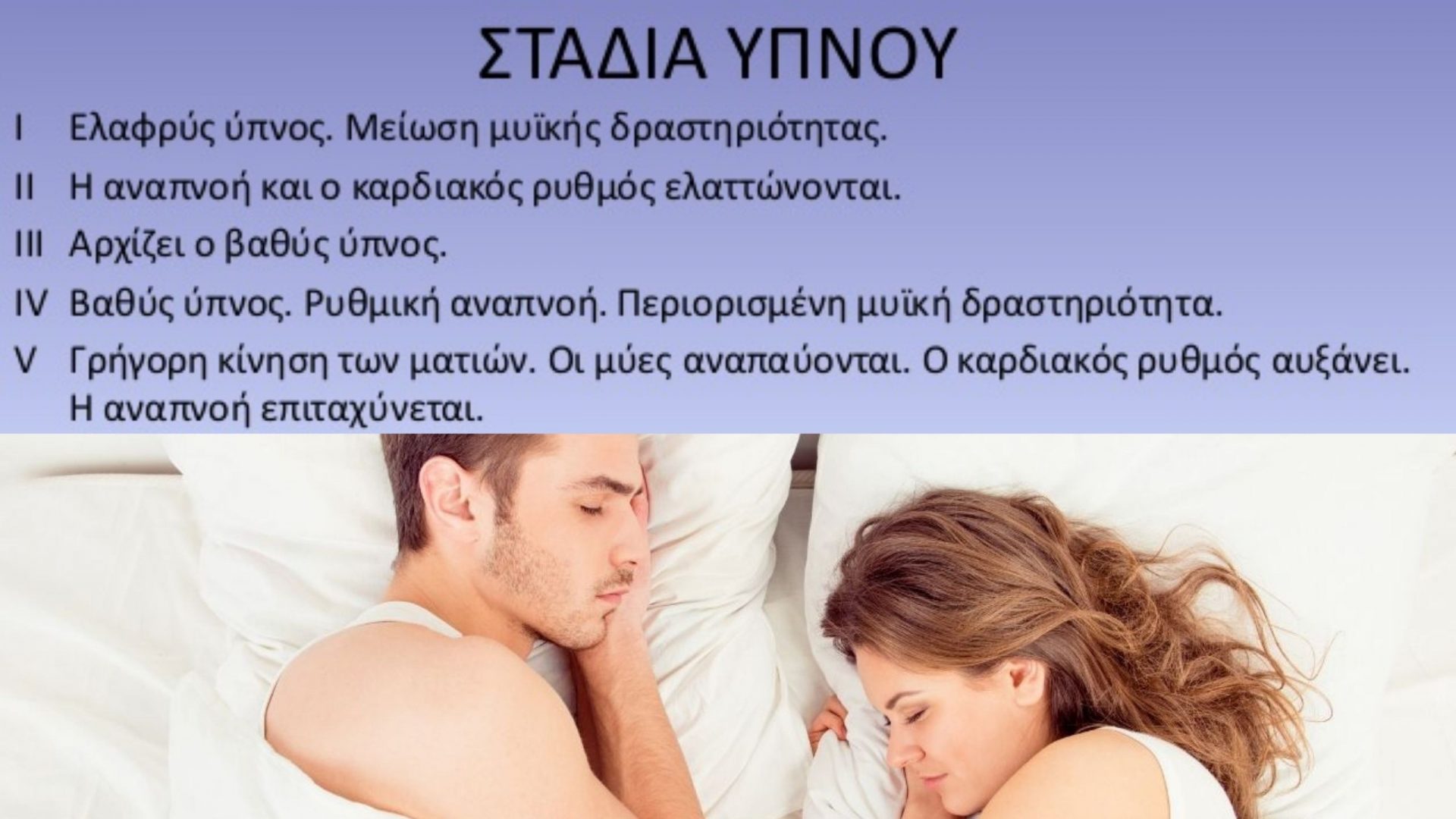Are you ready for bed or is it still too early?
Some of us need at least 8 hours of sleep, others are fine with 5.6 hours of rest and others don’t get out of bed until we have slept for more than 10 hours.
However you look at it, whether you see it as a pleasure or a necessity…. statistically, most of us, one third of our lives, sleep. You know that sleep is not just a time when all the functions of your body stop and that in order for you to be able to wake up every morning, something must be done right during it!
Sleep is an important part of our body, since the brain structure that controls our sleep patterns is the brainstem, which also controls functions such as breathing, swallowing, heart rate, blood pressure and consciousness.
These functions are vital to keep us alive.
Specifically, you are sleeping and your body is working…
Find out how!!!!

The stages of sleep.
In the first stage, REM sleep lasts only a few minutes, but lasts longer in each new sleep cycle, eventually reaching about half an hour. In contrast, the N3 stage tends to decrease with each new cycle. If for some reason a person loses REM sleep, the body tries to make up for it the next night. The only thing is that in every sleep we go through all the stages at least three to five times.
Your body thermometer is turned off
Just before you fall asleep and an hour and a half or two hours before you wake up, your body temperature drops a few degrees. Specifically, during REM sleep, the brain turns off your body’s “thermometer”, which is why, either when it is too cold or too hot, you usually wake up. The right room temperature to sleep like a bird should be cool.
Change in breathing rate
During sleep everything calms down and your breathing becomes slower, more relaxed… more normal. On the other hand, when you are awake this changes and breathing becomes fast. Almost the same rates are reached during the REM stage.
Heart pulses
The same thing with breathing rhythms happens with the heartbeat. When you sleep, a deep sleep, the pulse and blood pressure lower the rhythms, with the heart and blood vessels resting and relaxing. During REM sleep, however, the pulse and blood pressure return to almost the same levels as when a person is awake.
Your brain is not sleeping
Your brain cells when you start to sleep, they begin to work in a steady and rhythmic pattern. When and if you start dreaming, they are activated at a faster rate, with the process becoming even faster, at normal levels to when you are awake, when you are in REM sleep.
Dreams every moment
The subject of dreams is a big subject in itself, which we will discuss at another time. However, even scientists consider this issue a mystery and do not know for sure how and why it is happening. According to research, it is most common to dream during REM sleep, but it is not unlikely to dream at any time and stage of your sleep.
Immune strengthening and damage repair
During deep sleep, your body works to repair muscles, organs and other cells. Also, various chemicals that boost the immune system begin to circulate in the blood. It should be noted that young and healthy people spend about 1/5 of their sleep each night in deep sleep, but as they get older this time decreases.
Throwing away useless information
A very important and helpful action of our brain is the clearing of useless information that we may have in our head, information that may be completely useless. How many times have you heard, sleep to find the solution to a problem you want? This is true. It is often observed that while sleeping a person finds solutions to problems more easily or remembers facts and information that he or she may have forgotten. Those who lack sleep, especially REM sleep, lose this advantage.
They paralyze your arousal centers
As soon as you go to bed you think about every job you didn’t do, every obligation you have, you remember that you want to eat, drink… you think about the past, the present and the future…
How will you sleep under these conditions? Fortunately, a substance called GABA is produced in the hypothalamus of your brain, which calms down the “arousal centres”, which is the main reason why you can’t sleep. Among other things, during REM sleep, the brain sends signals for temporary paralysis of the muscles that move the body, arms and legs, preventing people from carrying out the thoughts and dreams they see.
Hormone fluctuation
You sleep and your hormones fluctuate accordingly. Your body knows and produces some hormones less or more. For example, growth hormone levels increase and cortisol, which is associated with stress, decreases. According to research, insomnia is related to a problem with the body’s hormone production system. Lack of sleep, among other things, affects the levels of hormones (leptin, ghrelin) that control hunger which can change how much you eat and contribute to weight gain.

